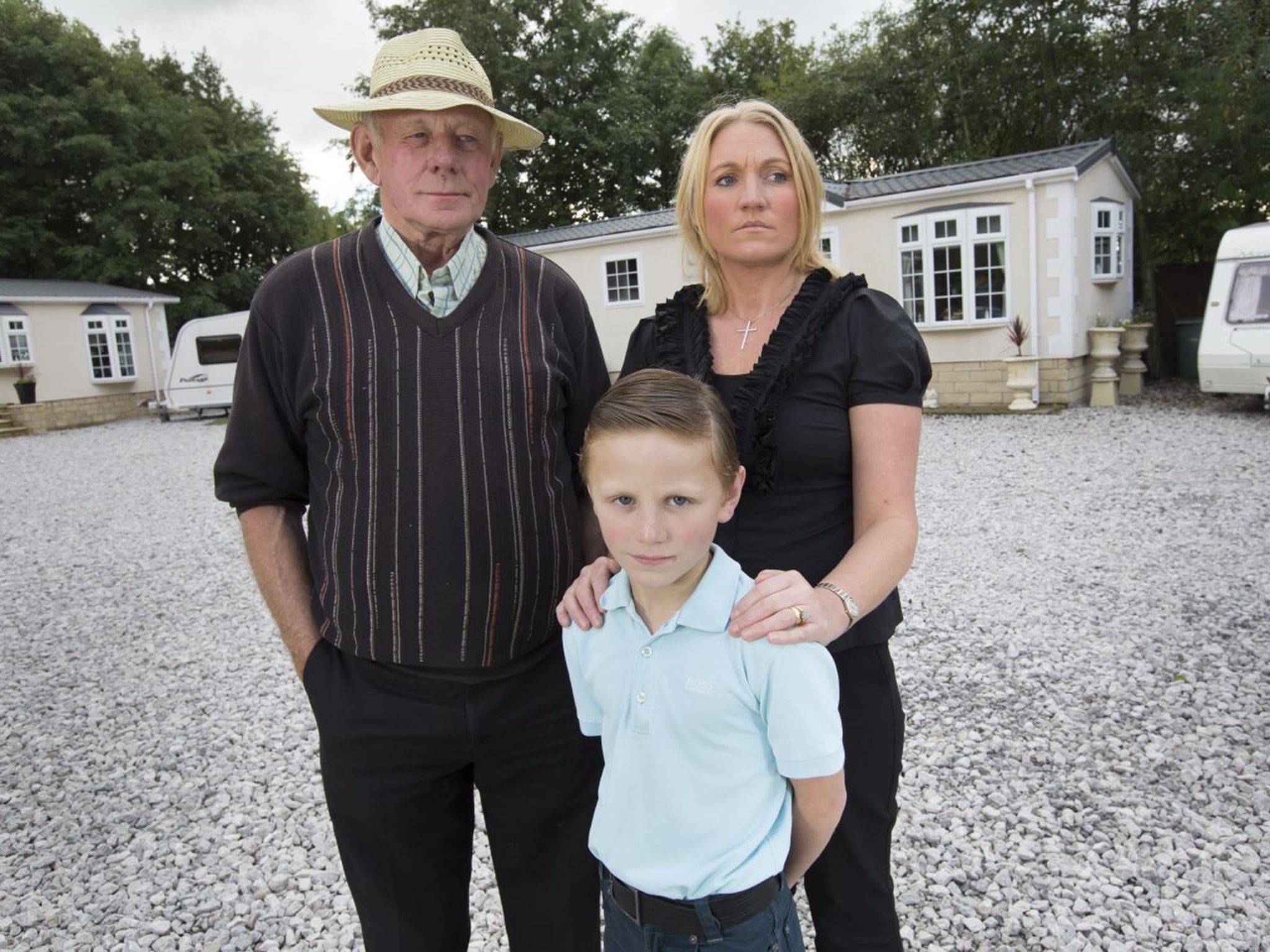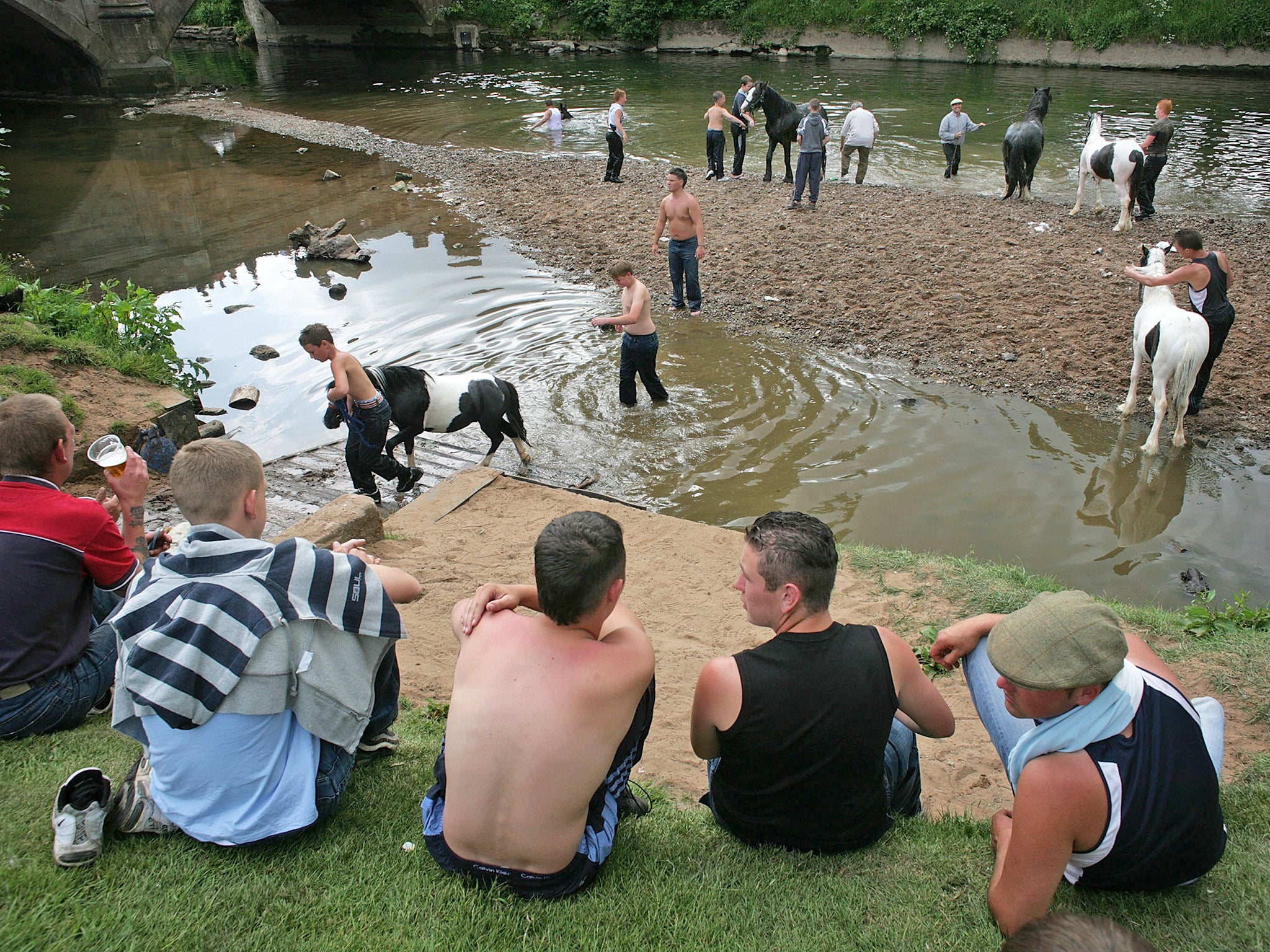Settled Gypsies could be forced back on to the road by new planning laws
Travellers must prove they are itinerant to stay on sites

Your support helps us to tell the story
From reproductive rights to climate change to Big Tech, The Independent is on the ground when the story is developing. Whether it's investigating the financials of Elon Musk's pro-Trump PAC or producing our latest documentary, 'The A Word', which shines a light on the American women fighting for reproductive rights, we know how important it is to parse out the facts from the messaging.
At such a critical moment in US history, we need reporters on the ground. Your donation allows us to keep sending journalists to speak to both sides of the story.
The Independent is trusted by Americans across the entire political spectrum. And unlike many other quality news outlets, we choose not to lock Americans out of our reporting and analysis with paywalls. We believe quality journalism should be available to everyone, paid for by those who can afford it.
Your support makes all the difference.Gypsies and Travellers across Britain will be driven off sites they have made their home by new planning laws requiring them to prove that they are still itinerant. The move could cause a large increase in the number of unauthorised roadside camps, and force many families – including the infirm and those with children in school – on to the road against their will.
The new policy, quietly introduced by the Government, will block anyone identifying as a Gypsy or Traveller from staying on permanent caravan sites unless they can prove they have travelled several times that year. It is considered so discriminatory and unlawful that legal experts are already predicting a High Court challenge.
While most Gypsies and Travellers enjoy living in the open air on communal caravan sites they find it increasingly difficult to continually move from place to place, because of a lack of adequate sites. The new policy will force them to prove they have travelled in the past year or risk losing their identity in the eyes of the law.

The Equalities and Human Rights Commission made submissions to the Government saying that the new law did not adequately consider the rights of Gypsies and Travellers. It argues that the most vulnerable are likely to be worst affected – particularly parents who do not want their children’s education interrupted by moving around and older people who are too unwell to travel.
A spokesman for the commission said: “We have written to the Government to explain the position under international law. This sets-out that Gypsies are not Gypsies merely because they travel. Membership of that group is also both a question of ethnicity and cultural identity, which includes ethnic minorities such as Romani Gypsies and Irish Travellers.”
Yvonne MacNamara, chief executive of the Traveller Movement, said: “These changes will cause real hardship. The UK’s estimated 120,000 Gypsies and Travellers will not just disappear because a government minister no longer wishes them to exist.
“They will still be there, they will still need somewhere to live, but their lives will become even more marginalised, and their legal status as equal citizens of this country will be brutally undermined. The meddling with the definition of some of our oldest still surviving ethnic minorities is something that belongs in a more terrible recent past.”
The new law also bans the development of legal Traveller sites on green-belt land and in “green open spaces”. Traveller campaigners say that this is unfair and will create a “rural apartheid” since more than 200,000 houses are already being built in these areas.
The need to prove that they are still itinerant is likely to mean that the 2,671 Gypsy and Traveller caravans currently on unauthorised sites could be forced back out on the road. A further 800 or so caravans with temporary permissions also face eviction when these expire. Once on the road they will be stuck in limbo as they are unlikely to get planning permission because most private sites are in rural locations.

There has been a steady increase in the number of permanent authorised private Traveller sites, which now make up the majority of the total. The introduction of a law likely to force people off these sites and back on the road, and trigger a proliferation of unauthorised sites, has made campaigners question the motive behind the changes which Greg Clark, Secretary of State for Communities and Local Government (DCLG) says are intended to “reduce community tensions”.
Ms MacNamara said: “The new rule changes will make Traveller site provision almost impossible. As a result of these proposals we strongly believe that what has been a decrease in unauthorised caravans, and a slow but steady increase in site provision, will be dramatically reversed. This will exacerbate the problem of unauthorised encampments in inappropriate places such as playing fields and car parks, causing more hardship and disruption, and could bring tensions between settled and Traveller groups to boiling point.”
Lord Avebury, who is a patron of the Traveller Movement, said: “For centuries Gypsies and Travellers have travelled the length and breadth of England playing an invaluable role in this country’s socio-economic and cultural development.
“The closure of the commons, increasing privatisation of land and dramatic economic changes in the last 50 years have resulted in many Gypsies and Travellers ceasing to travel on a regular basis, but the cultural tradition of travelling has lived on in the form of living in caravans on Traveller sites, often with close family relatives.
“The Government’s new planning policy redefines these groups out of existence by showing no consideration or understanding in the planning system of their cultural tradition of travelling. This redefinition will result in a whole generation of Gypsies and Travellers no longer being qualified to apply to live on a Traveller site. It is also likely to increase the number of unauthorised encampments and put pressure on local housing as many Gypsies and Travellers are forced into other accommodation.”
A DCLG spokesman said: “We’re determined to ensure fairness in the planning system, so everyone abides by the same rules. The new policy strengthens the hand of councils to tackle unauthorised development in their area, ensures all communities are treated equally and that the protection of the green belt is strengthened.”
Join our commenting forum
Join thought-provoking conversations, follow other Independent readers and see their replies
Comments